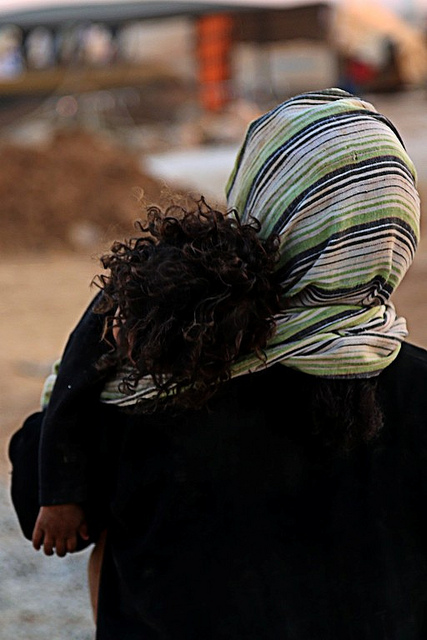Loss of Innocence for Syria’s Female Refugees
/Jessica Tanner, Staff WriterLast Modified: 15:44 p.m. DST, 1 July 2013
 The Syrian women describe how even going to the bathroom in the Zaatari camps can be a threat. “There is no light, if we come in here there could be a guy hiding or something,” one of them says. None of the female refugees want to be identified. Their fear follows them, even as they seek refuge across the border in Jordan.
The Syrian women describe how even going to the bathroom in the Zaatari camps can be a threat. “There is no light, if we come in here there could be a guy hiding or something,” one of them says. None of the female refugees want to be identified. Their fear follows them, even as they seek refuge across the border in Jordan.
Zaatari is a refugee camp in Jordan, located 10 km east of Mafraq. It was first opened on July 28, 2012 to host Syrians fleeing the violence in the ongoing Syrian civil war that erupted in 2011.
According to Wikipedia, the camp population amounts to 19000-38000 refugees.
Even with the promise of “safety” for the female refugees, there is still another catch. Many of Syria’s female population have had to trade fear of death in their homeland for fear of something much worse: rape.
There have been various threats of sexual harassment and rape in the Zaatari camp – teeming with masses that continue to stream across the border. This crisis has resulted in a disturbing growing phenomenon: “sutra” marriages, or marriages for protection.
Many families who feel like they are unable to protect their female family members are marrying them off for their own safety. The majority of families are saying that they had no other alternatives.
According to one Syrian mother, “I swear I wasn’t able to sleep, I was afraid for the girls. I swear to God, I would not have let her get married this young if we were in Syria.”
Although the international community refuses to end the conflict in Syria, there is a solution to preventing the exploitation of the Syrian female population: more aid.
According to another Syrian mother, “We left Syria to escape death and we found something worse than death. If we had stayed in Syria to die it would have been more honorable. There death is fast, here it is slow.
Follow Jessica Tanner on Twitter Twitter: @nahmias_report Staff Writer: @JessTanner1991
Related articles
- Syria neighbours block thousands from fleeing: rights group (dailystar.com.lb)
- No sanctuary for Syria's female refugees - CNN International (edition.cnn.com)
- See the Heartbreaking Pictures TheBlaze's Buck Sexton Took from Inside a Syrian Refugee Camp (theblaze.com)
- Syrian Expatriates Organization (SEO) Launches Media Campaign "Freedom... (prweb.com)















